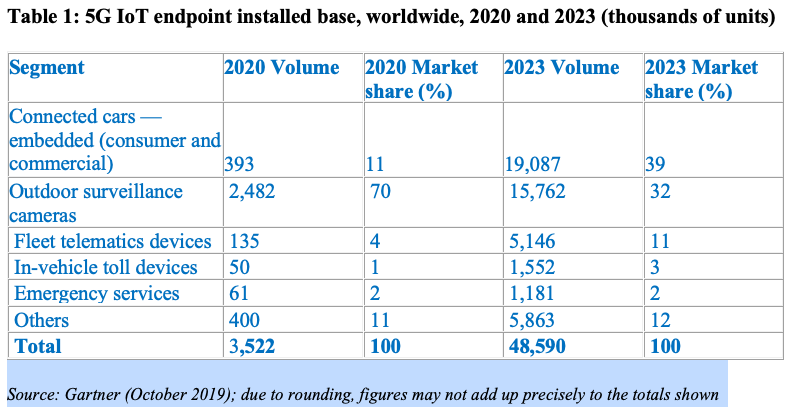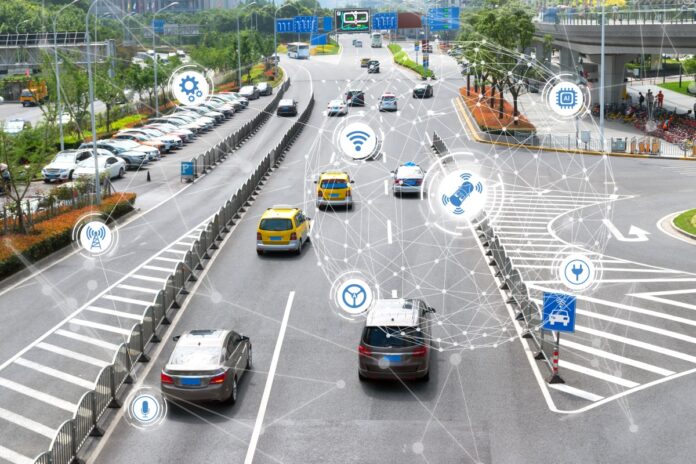Gartner predicts that in the longer term, connected cars will be the single biggest 5G-enabled, IoT market for network operators.
In 2020 outdoor surveillance cameras will account for 70% of the global base of IoT endpoints in 2020, but their market share will fall to 32% by 2023 as they are overtaken by connected cars in 2023.
HAVE YOUR SAY ABOUT THE IoT MARKET WITH OUR SURVEY HERE
Gartner’s Market Trends: 5G Opportunities in IoT for Communications Service Providers predicts that 5G IoT installed endpoints for outdoor surveillance cameras will reach 2.5 million in 2020, 6.2 million units in 2021 and 11.2 million units in 2022, but will be surpassed by connected cars in 2023.
Urban intruders
“Cameras deployed by city operators or used to ensure building security and provide intruder detection offer the largest addressable market as they are located outdoors, often across cities, and require cellular connectivity,” said Stephanie Baghdassarian, Senior Research Director at Gartner.
Gartner predicts that the 5G IoT endpoint installed base will more than triple between 2020 and 2021, from 3.5 million units in 2020 to 11.3 million units in 2021.
By 2023, the 5G IoT endpoint installed base will approach 49 million units (see Table 1).

5G capabilities open up new enterprise market opportunities, so communications service providers must assess many use cases so that they can prioritise investment for IoT solutions.
“Their investments should focus on outdoor surveillance cameras, connected cars, and government and physical security,” said Baghdassarian.
Connected cars biggest long-term opp
In 2023, the automotive industry will become the largest market opportunity for 5G IoT solutions. It will represent 53% of the overall 5G IoT endpoint opportunity in that year.
Within the automotive sector, embedded connected-car modules are the major use case for 5G.
Embedded endpoints in connected cars for commercial and consumer markets will represent an installed base of 19.1 million units out of a total of 25.9 million 5G endpoints in the automotive sector in 2023.
“The addressable market for embedded 5G connections in connected cars is growing faster than the overall growth in the 5G IoT sector,” said Baghdassarian.
“Commercial and consumer connected-car embedded 5G endpoints will represent 11% of all 5G endpoints installed in 2020, and this figure will reach 39% by the end of 2023.”
In addition, the share of 5G-connected cars actively connected to a 5G service will grow from 15% in 2020 to 74% in 2023.
C-V2X hit the big time in 2028
This figure will reach 94% in 2028, when 5G technology will be used for cellular V2X communications, which enable messages to be sent and received within vehicles and between vehicles, infrastructure, pedestrians, cyclists and more.
Gartner states that ultimately, connected cars actively connected to a 5G service will help keep traffic moving and improve road safety.
“We recommend that [service provider wanting] to be relevant [to] the 5G IoT market put this industry at the forefront of their investments. They should do this in terms of personnel who understand the sector and of partnerships that will move the market forward,” said Baghdassarian.



